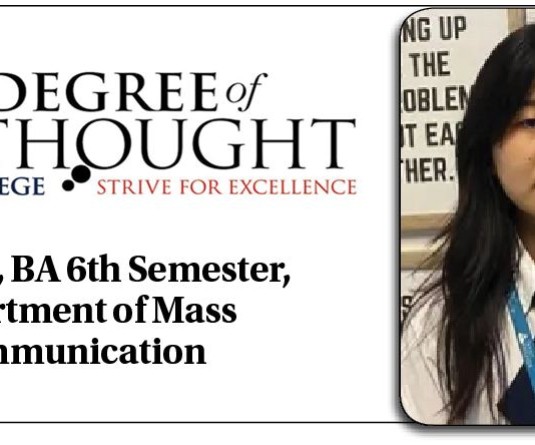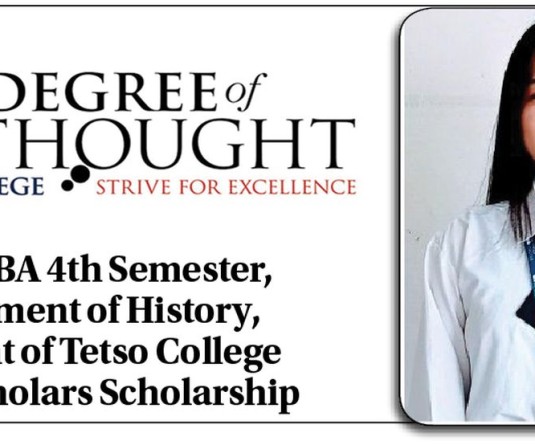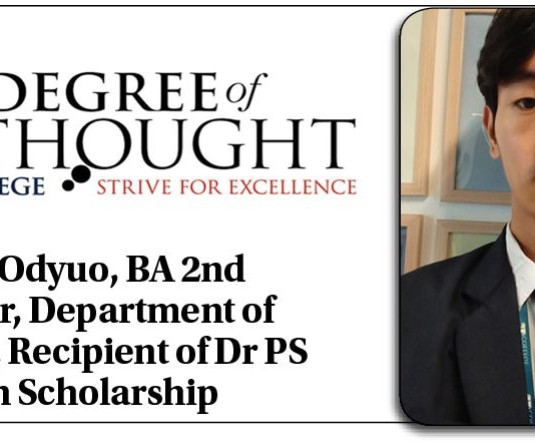
“But seek ye first the kingdom of God, and his righteousness; and all these things shall be added unto you”.
Mathew 6:33
The younger generation, immersed in the digital age, is fortunate to possess a plethora of new ideas, talents, innovations, and advanced tools thanks to the advent of technology. In our country alone, we witness the emergence of remarkable advancements such as self-driving cars, electric bikes, instant grocery delivery apps, software solutions, and various other ongoing developments developed by the youngster. Within our state, the Naga youth demonstrate exceptional ability to create invaluable tools and cultivate products and services from meager resources; a noteworthy feat, indeed. Nevertheless, it is essential for us to reflect on whether we are effectively harnessing the skills, talents, and divine gifts bestowed upon us by God within the realm of our churches.
Our present generation is blessed with numerous platforms that enable us to earn, showcase our talents, transform lives, and contribute to society. However, it appears that we are gradually diminishing our commitment to giving back to the church. While technology has provided us with unprecedented opportunities, only a select few utilize it in a manner that benefits the church. Instead of driving us away, technology should serve as a means to draw us closer to the church, facilitating convenience and accessibility.
Countless hours are dedicated to creating content encompassing dance, songs, visually captivating imagery, and various other forms of entertainment that result in personal satisfaction derived from accumulating followers and likes.
However, when it comes to contributing to their respective departments within the church, these same individuals appear to be noticeably absent. Instead, they are frequently observed on Instagram reels and WhatsApp status, engaging in dance routines, singing, or lip-syncing to songs. It is evident that considerable effort is invested in editing and rehearsing these performances, consuming significant amounts of time.
The focal point of concern lies not in questioning their presence on social media or their creation of content but rather in examining the circumstances surrounding the younger generation in our Naga community. In the majority of churches within our district, youth leaders experience exhaustion from repeatedly urging members to attend services promptly, actively participate in practice sessions, and assume leadership responsibilities during worship. The central argument here is that the dedication and time allocated to other platforms should be extended to our churches, if not increased. Our church departments ardently require our commitment and support.
Our Naga’s youth are not less in skills. Some are really good in photography, videography, graphic designs, speech, singing, playing musical instruments etc. And some are even freelancers earning through their skills. And these are just the common skills that we see. But there are more than this. You will see these skills on their social media handles about nature or movies or shorts, pictures but not about their church or at least, close to none. Ask this question, how many of our youth might have started utilizing their skills in church?
When we start utilizing our skills in our church, our skills blooms differently and way better in the long run than using it anywhere else and it reaches farther.
There is no problem using it on other platforms or society but our churches need us. It is He who provides. The skills and the gift that we are using are only from Him not the society which we sometimes forget, and serve the wrong master.
And another question that can be pointed out is that, how many of our churches have a media team or department? Which have a digital presence and looks over their social media pages and other digital account sharing gospel contents and inviting people to join together.
Our Nagas’ are skeptical to almost every new thing. There was a time when our parents and elder set an age benchmarks for using mobile. The benchmark for many was “after college”, “after 12” and only the lucky one gets “after 10”. While a logical and measureable benchmark is required but we were only stopping our child’s growth by setting the benchmark too late. This ultimately makes them unable to compete with the students of other cities, state or country.
Most churches are hesitant to embrace the digital world, but a few exceptions, like Faith Harvest Church led by Pastor Shan Kikon, are making their presence known. Additionally, the Youth Ministry of Dimapur Ao Baptist Church (DABA) organized a contest to spread the love of God and the gospel through painting and computer graphics. I would say that they have predicted the future and getting ready for future circumstances. We have already experienced and COVID-19 served as a warning to be ready for the next pandemic.
Many churches are unprepared for future pandemics and must recognize the indispensable role of technology in facing such challenges. The only way as of now on how to face any kind of future pandemic is TECHNOLOGY. It’s inevitable to avoid. Churches also need to function and communicate in a way that that the youth understands. It is an era of internet and social media, many of the interests and skills of the youth will be related to it in the few years to come. And there are numerous ways that the youth can contribute to the church and churches have multiple ways to integrate technology in bringing out the youths’ skills and talent in church. On both sides there are ways to collaborate.
Be it in business, churches and social spaces, technology is indispensable in today’s world. By integrating technology, we can pave the way for an impactful future in all areas of society.
The writer is currently pursuing MBA at Sharda University, Greater Noida, Uttar Pradesh and Alumni of Tetso College, 2021 Batch
The Degree of Thought Column is a weekly community column initiated by Tetso College in partnership with The Morung Express. The column explored contemporary social, cultural, political, and educational issues and challenges around us. However, the views expressed here do not reflect the opinion of the institution. Tetso College is a NAAC-accredited, UCG-recognized Commerce and Arts college. Currently, the Degree of Thought Column is managed by the department of Mass Communication, and the editorial team are Dr Jenny Lalmuanpuii, KC Gabriela and Rinsit Sareo. For feedback or comments, please email:dot@tetsocollege.org.






